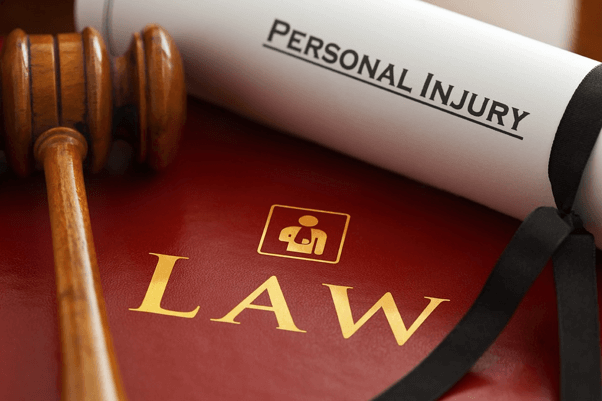Important Things You Should Do After A Workplace Accident in NY
 Image Source: https://images.pexels.com/photos/585419/pexels-photo-585419.jpeg
Image Source: https://images.pexels.com/photos/585419/pexels-photo-585419.jpegThe New York State Department of Labor reported that nearly three out of every 100 full-time employers sustained a non-fatal injury from a work-related incident. Among hospitals and nursing homes, the incident rate stood at more than 12 accidents per 100 full-time employees. Workers in transportation and construction injuries. In 2017, construction accidents in New York City claimed 87 lives, up 31 from the previous year.
These statistics underscore that employees face and you need assistance with workers' compensation cases should you be a victim of a workplace or work-related injury.
Below are some actions you need to take if you get hurt while on your job.
Obtain Medical Treatment
Get treated with any first aid or any treatment provided by an on-site nurse or doctor. Unless you need emergency attention, you must go to a physician or other medical provider approved by the New York Workers' Compensation Board. In many cases, your employer will refer you to one of these physicians. If you refuse or fail to be seen by one of these approved providers, the employer may decline to pay your medical expenses. Contact an experienced New York workers' compensation lawyer to assist you with requests for medical compensation to the state Workers' Compensation Board or any alternative dispute resolution in which the employer may participate.
Do not hold back information during your medical visits, especially as to the extent of your injuries. Doing so may cause the doctor to misdiagnose your injuries or not properly address your problems. Also, your doctor might miss concluding that your injuries arose from your work. Your employer and its workers' compensation insurance carrier do not have to pay unless the injury occurred as a result of you performing your job.
To that end, indicate on your initial intake forms with the provider that you were injured on the job. If the form has a selection for workers' compensation, mark it. Tell the physician how you were injured. If you claim an occupational disease as the basis for workers' compensation, explain your work conditions and any chemicals or substances to which you may be exposed.
Making and Getting Accident Reports
As soon as possible, notify the employer in writing. Send to your supervisor or the human resources manager a written explanation of how you were injured, what activities you were performing when injured, where the incident occurred, and the date and time. The New York law gives you 30 days from the date of the incident to notify the employer. For claims based on occupational diseases, you have two years from when you discovered or should have discovered that you have an occupational disease. You risk losing your rights if you fail to meet these deadlines.
The employer must prepare and file with the Workers' Compensation Board a Form C-2F, known as the “Employer's Report of Workplace Injury/Illness.” Unless the workers' compensation carrier does it, your employer must file the report within eighteen days after the accident or ten (10) days after it becomes aware of the accident — whichever period is greater. Be sure you get this report so that you can know the employer's view of what happened and especially whether the employer disputes your version of the events.
Obtain and Note Information of Your Disability
In addition to medical benefits, workers' compensation may award you a portion of your lost wages or lost earning capacity. As such, be sure that you get from the physician a disability rating or other opinion on how the injury diminishes your ability to work. The workers' compensation law delineates disability in terms of whether it is temporary or permanent and whether the disability is total or partial.
Also, keep a diary to track lost wages or disability that you might claim. Note the days and times you missed work. If possible, you should return to work. Missing days when you are able to work does not avail you in your case.
Don't Lay Out of Work Just to Get Benefits
If you cannot return to your present job,the employer or its insurer may still contest your claim if you have not made a good faith attempt to find suitable employment. Include in your diary all applications for employment, stating the name of the employer with whom you applied, the employer's address, when you applied, the job description and the results.
The workers' compensation law requires you to use the Board's rehabilitation services if your loss of use of an extremity, such as a shoulder, arm, foot or head, or your loss of hearing or vision exceeds 50 percent. Even if not mandatory, will have a rehabilitation worker examine and work with you can offer you reliable information on your work limitations. Such can help in getting you adequate compensation for your work injuries.
File the Claim
 Image Source: https://cdn.pixabay.com/photo/2015/10/22/06/56/lawyers-1000803_960_720.jpg
Image Source: https://cdn.pixabay.com/photo/2015/10/22/06/56/lawyers-1000803_960_720.jpgSubmit a Form C-3 to the Workers' Compensation Board to initiate your claim for benefits. You have two years from the date of the accident or from the date you discovered or should have discovered that you have an occupational disease. Failing to meet the deadlines forecloses your rights to disability and medical benefits under the Workers' Compensation law.
You will receive compensation in the form of biweekly payments if your employer does not contest whether you were injured in a work-related accident. Should the employer dispute your right to compensation, you will ultimately have a hearing.
Who Else May Be Responsible?
Workers' compensation does not award you the full measure of your damages. For instance, pain and suffering and property damage do not form part of the recoverable damages in a workers' compensation case.
This is the trade-off for your not having to prove that your employer was at fault for the workplace accident.
If your work-related injuries occurred at the hands of a negligent party, you may have a separate personal injury claim. Such incidents include construction mishaps, auto accidents or faulty equipment used by an employee. As part of a potential third-party negligence suit, get the identities of other drivers, the owners of a project site or the manufacturer of the equipment that harmed you.
Even though workers' compensation operates on a no-fault basis, these cases are not necessarily without dispute. Getting your benefits also requires action on your part. You need to notify your employer of the accident, get treatments approved by the employer (or its carrier) or the Workers' Compensation Board and make reasonable efforts to return to work. Should you have a disability that prevents you from working or medical bills that the employer's insurer won't pay, you will need to file a claim with the Workers' Compensation Board. Don't allow delay or lack of knowledge or assistance on your part prevent you from being adequately compensated for your injuries.



Leave a Reply